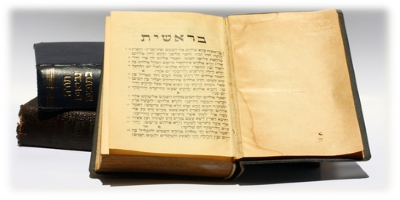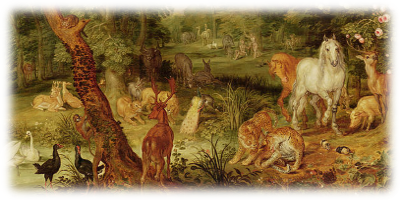As Hebrew poetry is written much differently than our own Western style of poetry, many do not recognize the poetry which can cause problems when translating or interpreting passages written in poetry.
Approximately 75% of the Hebrew Bible is poetry. All of Psalms and Proverbs are Hebrew poetry and many other books, such as the book of Genesis, are filled with poetry. The reason much of the Bible was written in poetry is that it was originally sung and stories that are sung are much easier to memorize that when simply spoken. There is much more poetry in the Bible than most realize because most people do not understand it.
The most common form of poetry in the Hebrew Bible is parallelisms, which is the expression of one idea in two or more different ways.
Your word is a lamp to my feet and a light for my path. (Psalms 119:105)
The above example of a simple parallel and can be written in this manner;
Your word is;
1. a lamp to my feet
2. a light for my path
Here we see that the words "lamp" and "light" are paralleled as well as the words "my feet" and "my path". Below is another example of this style of poetry.
My son, my teachings you shall not forget and my commands your heart shall guard. (Proverbs 3:1)
In this verse the words "my teachings" is paralleled with "my commands" and "you shall not forget" is paralleled with "your heart shall guard" and can be written as follows.
My son;
1. my teachings you shall not forget
2. my commands your heart shall guard
Below is Psalm 15:1-3 broken down into its poetic sequences. In this example each thought is represented by the letters A, B, C and D. Each expression of a thought is represented by the numbers 1 and 2.
A1. Lord, who may dwell in your sanctuary?
A2. Who may live on your holy hill?
B1. He whose walk is blameless
B2. and who does what is righteous.
C1. who speaks the truth from his heart
C2. and has no slander on his tongue.
D1. who does his neighbor no wrong
D2. and casts no slur on his fellow man.
While the book of Psalms and Proverbs are the most recognized as being poetical in nature, it is found throughout the whole of the Hebrew Bible.
Lamech said to his wives, "Adah and Zillah, listen to me; wives of Lamech, hear my words. I have killed a man for wounding me and a young man for injuring me." (Genesis 4:23)
Let's break down what Lamech says. First, he says; "Adah and Zillah, listen to me." This sentence is a paralleled with the following sentence; wives of Lamech, hear my words. Then he says that he has killed; a man for wounding me, which is parallel with; a young man for injuring me. Lamech did not wound one person and injure another, he killed one person and says it two different ways.
Isaiah 6:10
| A. | Make the heart of this people fat, |
| B. | and make their ears heavy, |
| C. | and shut their eyes; |
| C1. | lest they see with their eyes, |
| B1. | and hear with their ears, |
| A1. | and understand with their heart, and return, and be healed.". |
Another common form of parallelism is the use of negatives, where two opposing ideas are stated as we see in Proverbs 11:19-20.
A1. Righteousness brings one to life
|
Like what you’re discovering? Continue the journey from Bible reader to translator.
|






